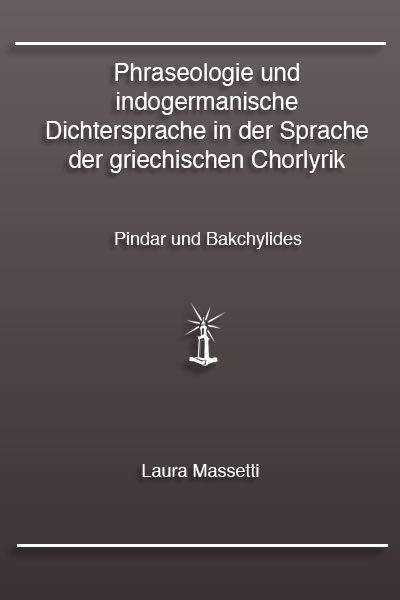Phraseologie und indogermanische Dichtersprache in der Sprache der griechischen Chorlyrik: Pindar und Bakchylides
The subject of this work is the phraseology and poetic language that are documented in Pindar (518-446 BC) and Bakchylides (516-452 BC), have parallels in other poetic traditions, and can in part prove to be inherited. Phraseology is the way in which phraseological units (individual words or groups of words) are combined in the oral or written language. In any…
The subject of this work is the phraseology and poetic language that are documented in Pindar (518-446 BC) and Bakchylides (516-452 BC), have parallels in other poetic traditions, and can in part prove to be inherited. Phraseology is the way in which phraseological units (individual words or groups of words) are combined in the oral or written language. In any study of phraseology, the first thing to consider is how the various elements of a speech are related. Poetic language is understood to mean the use of language that goes beyond the limit of the mere communication of information, since the communication of the message itself proves to be a work of art because of the poetic function of language. Therefore, an investigation of poetic phraseology presents itself in principle as a study that focuses on expressions whose application makes a linguistic message poetically-artistically.
— Translated from the Introduction
Online publication of a dissertation submitted to the Historisch-Vergleichende Sprachwissenschaft (Institut für Linguistik), Universität zu Köln, in 2016.
Use the following persistent identifier: http://nrs.harvard.edu/urn-3:hul.ebook:CHS_MassettiL.Phraseologie_und_indogermanische_Dichtersprache.2019.
Copyright, Laura Massetti. This dissertation is published here with permission of the author.

